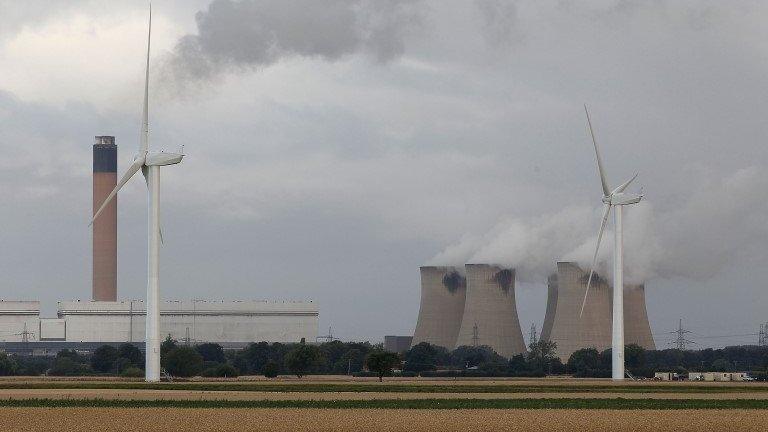Wind farm subsidy cut putting off lenders, research suggests
- Published
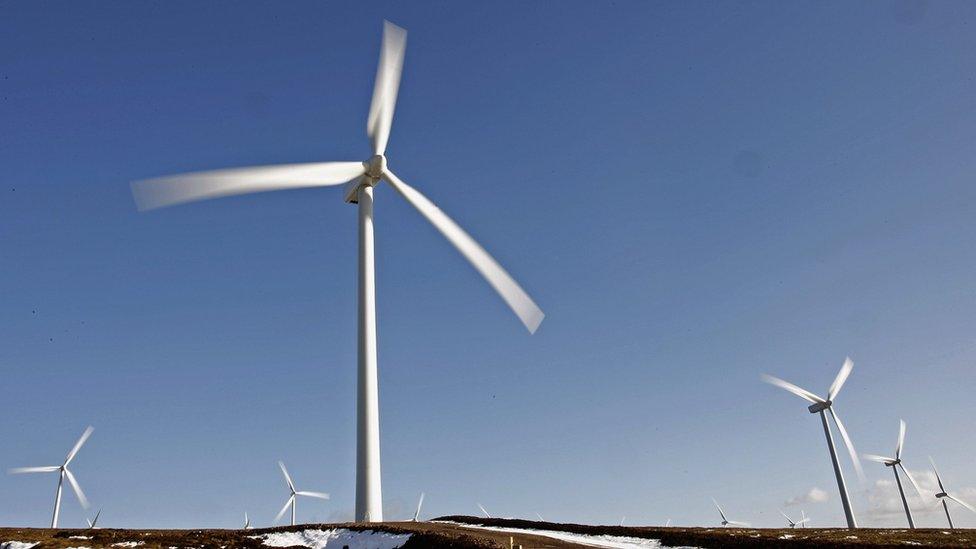
Investment in onshore wind energy is already being hit by the early withdrawal of government subsidies, according to a survey of lenders.
In June, UK ministers said new onshore wind farms would be excluded from a subsidy scheme from 1 April 2016.
Research for industry body Scottish Renewables , externalsuggests investors are now less willing to lend to projects.
The UK government said it was taking urgent action to address the projected overspend on subsidies.
It has previously said there are already enough subsidised wind energy projects in the pipeline.
The announcement that the Renewables Obligation (RO) - funded by levies added to household bills - would be withdrawn a year earlier than expected has been criticised by Scottish Renewables.
A survey, carried out on its behalf by EY, asked 10 major lenders about their willingness to provide investment.
Of the seven who responded, more than half said they were not prepared to lend until the UK Energy Bill had received Royal Assent, which is not expected until next year.
The political and regulatory risk concerning the RO was one of the key factors cited.
Michael Rieley, senior policy manager at Scottish Renewables, said the expected loss of the subsidy "had a clear and negative impact on the ability of developers to attract finance to their projects".
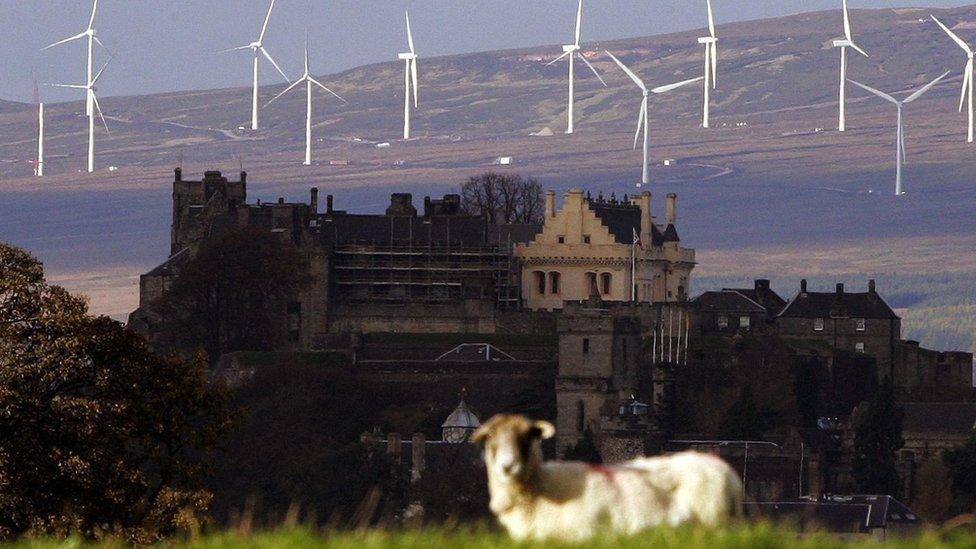
The UK government says there are already enough subsidised wind farms in the pipeline
"Our members have already expressed concern that they were entering an investment hiatus and this survey of lenders would indicate their suspicions are well founded," he said.
Mr Rieley added: "With the decision to end support a year earlier than planned, around 2GW of onshore wind projects in Scotland have been put at risk.
"These are projects that could bring around £3bn of investment and provide enough generation to meet the equivalent electricity demand of 1.2 million Scottish homes."
Matthew Yard, assistant director at EY, said: "The results of the survey indicate that raising project finance for UK onshore wind RO projects has become more complex, more expensive and increasingly difficult since the announcement of the early closure of the RO.
"Those banks that have indicated they are considering lending to UK onshore wind RO projects are now seeking better terms and some form of mitigation against a situation with no RO revenue."
Falling costs
A spokeswoman for the Department of Energy and Climate Change said: "We're taking urgent action to address the projected overspend on subsidies for renewables and to protect bill payers.
"Government support has driven down the cost of renewable energy significantly. As costs continue to fall and we move towards sustainable electricity investment, it becomes easier for parts of the renewables industry to survive without subsidies."
WWF Scotland director Lang Banks said: "This survey provides further evidence that the UK government's energy plans are damaging investor confidence in the cheapest form of renewable technology.
"And, it's not just investment and jobs that are at risk by their reckless policies, but our ability to cut carbon emissions. Even the government's own analysis shows that an early ending of support for onshore wind could drive up power sector emissions in the UK by up to 63 million tonnes."
- Published18 June 2015
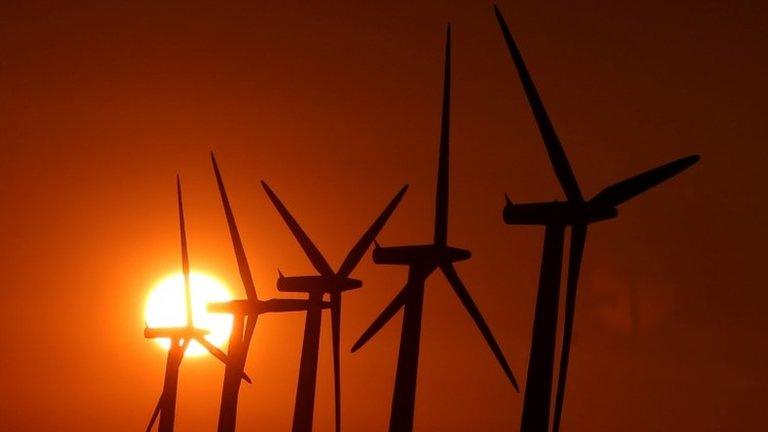
- Published18 June 2015
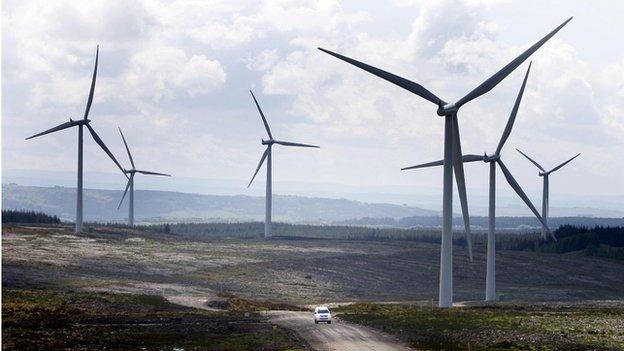
- Published24 April 2014
